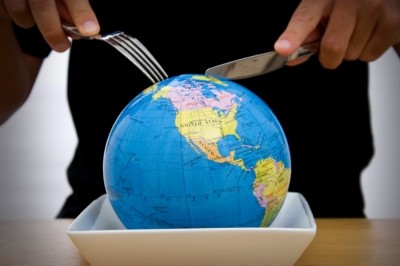Pompeian opens center to ensure olive oil safety

The US-based manufacturer and importer of olive oil made a $2m investment in the Pompeian Quality Control and Research & Development Center.
It is the first such center and replaces Pompeian’s old lab which was 650-square feet.
The facility at Pompeian HQ in Baltimore will service all its olive oils produced in bottling plants on the East and West Coast of the country.
Light, temperature and oxygen parameters
The firm does daily internal testing by American Oil Chemists’ Society (AOCS) approved Pompeian Chemists and an accredited Pompeian Sensory Panel.
Pompeian said it is the first national brand of extra virgin olive oil to have the US Department of Agriculture (USDA) Quality Monitored Seal through the agency’s Quality Monitored Program.
Dr Luisito Cercaci, Pompeian’s VP of quality and R&D, said its Extra Virgin Olive Oil samples undergo testing for sensory, quality, purity and origin.
“Light, temperature and oxygen comprise the main elements responsible for sensory and overall quality product degradation,” he told us.
“Natural conditions such as disease, extreme weather conditions and insect infestations can affect olive crops. On the production side, improper processes during milling and storing of the oil can also negatively impact the quality of oil.
“While the growing attention on fraud and olive oil as a vulnerable commodity has certainly influenced the decision, we have always strived to produce the highest quality olive oil.
“This advancement comes on the heels of…our participation in the voluntary USDA Quality Monitored Program, the creation and subsequent AOCS accreditation of the Pompeian Sensory Panel and the formation of a unique team of scientists and technicians with deep expertise in olive oil that is very rare to find in the US.”
Analytical aspect
The center has a lab to perform quality and purity analysis on 15,000 samples per year in accordance with quality standards and certifications, including Codex Alimentarius, International Olive Council (IOC), USDA, Food and Drug Administration (FDA) and the European Union (EU).
Equipment includes High Performance Liquid Chromatography (HPLC) with RID and UV-Vis and DAD detectors, capillary Gas Chromatography (cGC) and Mass Spectrometry Gas Chromatography (GC-MS), including use of narrow bore column GC, a UV-Vis Spectrophotometer with a continuous liquid sampler/external sampler probe, a Near Infrared Spectrometer (NIR) for evaluation of raw material and finished goods and a LIMS system for data management.
“By using these instruments, and applying several physical-chemical techniques, the new lab is able to perform many forms of analysis,” added Dr Cercaci.
The center houses Pompeian's traceability software system, which allows every oil batch to be traced to where each olive is grown and harvested.
Pompeian's 10-strong team of olive oil experts, food scientists and AOCS approved chemists, biologists, food engineers and quality assurance technicians are led by Dr Cercaci and will soon be expanded to 12 people.
Lighting and shelf life systems
A specialized lighting system allows evaluation of colour and visual aspects of raw materials.
The light ceiling system uses a specific panel system and more than 100 LED light fixtures of 7,000 lumen each, with scope to recreate natural light without a shadow in the lab area.
The shelf life experiment/research room features a specific control system for temperature, humidity and varying light sources (to reproduce all ranges of environmental conditions typical in a store) to better study behaviour and improve stability and quality of products during shelf life at the retail/store level.
Pompeian has an exclusive partnership with the biggest cooperative of olive oil farmer in the world, DCOOP which boosts quality control.
The firm said it does not have any plans to begin exporting olive oil and is focused on the American consumer.
Relationships with farmers worldwide allows the firm to source olives from multiple countries including Spain, Greece, Morocco, Tunisia, Portugal, Chile, Argentina, California and others.
“Subsequently, we’re able to continue production, consistent in quality and flavor, without a spike in consumer prices, even when poor harvests strike,” said Dr Cercaci.
“Specific to extra virgin olive oil production, extra virgin olive oil is a natural product obtained directly from fruit and must be produced only by mechanical means, without the use of any strong physical or chemical process or solvents. In addition, it must be produced only under temperatures that will not degrade the oil, preserving its flavor and healthy properties.”























